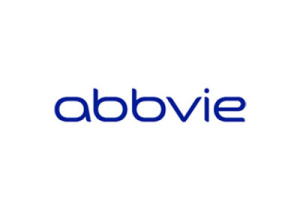
Dion Rudnicki
Dion Rudnicki has 30 years of sales and business management experience in delivering business growth by working with diverse client organizations to implement IBM solutions to address their most challenging operational and strategic needs. In his current position, Mr. Rudnicki leads a global team focused on market-differentiated solutions for central, regional and local government clients that will subsequently provide innovative, cost-efficient services to their citizens. In addition, Mr. Rudnicki is responsible for the operations of IBM’s Institute for Electronic Government, IBM’s client briefing center in Washington DC that educates thousands of senior public sector executives each year on IBM’s capabilities and thought leadership.
Mr. Rudnicki began his career with IBM in 1983 in Endicott NY as a manufacturing quality engineer. In 1986, he moved to the Washington DC area and joined IBM’s Federal sales and marketing organization as a client representative for the US Department of Transportation. Since that time, Mr. Rudnicki has held a variety of executive sales management and business development positions: IBM vice president of client sales for US Federal Civilian agencies, IBM vice president for North American high performance computing sales, and vice president and
Industry Leader within IBM’s global business services organization supporting several US Federal Civilian agencies. Prior to assuming his current role, Mr. Rudnicki joined IBM’s global government and education industry team in 2013 as the vice president of business development.
Mr. Rudnicki earned a Bachelor of Science degree in Mechanical Engineering from the University of Notre Dame. He is on the board of directors for the Center for Inspired Teaching, the World Affairs Council - Washington DC, and the United States Telecommunications Training Institute. Mr. Rudnicki is the co-chair of the Parent’s Council for the Office of Student Affairs at Virginia Polytechnic University and is a member of Indiana University’s Advisory Board for the Kelley Institute for Business Analytics. He serves on the Smithsonian’s National Postal Museum
Advisory Council and is IBM’s representative on the Greater Washington Board of Trade. He recently ended his board position with the Greater Washington DC Junior Achievement organization after 7 years of service. Mr. Rudnicki serves as IBM’s Senior Location Executive for the Greater Washington metro area representing IBM on a variety of community activities. He and his wife Michelle live in Bethesda MD with their two sons.
Mr. Rudnicki began his career with IBM in 1983 in Endicott NY as a manufacturing quality engineer. In 1986, he moved to the Washington DC area and joined IBM’s Federal sales and marketing organization as a client representative for the US Department of Transportation. Since that time, Mr. Rudnicki has held a variety of executive sales management and business development positions: IBM vice president of client sales for US Federal Civilian agencies, IBM vice president for North American high performance computing sales, and vice president and
Industry Leader within IBM’s global business services organization supporting several US Federal Civilian agencies. Prior to assuming his current role, Mr. Rudnicki joined IBM’s global government and education industry team in 2013 as the vice president of business development.
Mr. Rudnicki earned a Bachelor of Science degree in Mechanical Engineering from the University of Notre Dame. He is on the board of directors for the Center for Inspired Teaching, the World Affairs Council - Washington DC, and the United States Telecommunications Training Institute. Mr. Rudnicki is the co-chair of the Parent’s Council for the Office of Student Affairs at Virginia Polytechnic University and is a member of Indiana University’s Advisory Board for the Kelley Institute for Business Analytics. He serves on the Smithsonian’s National Postal Museum
Advisory Council and is IBM’s representative on the Greater Washington Board of Trade. He recently ended his board position with the Greater Washington DC Junior Achievement organization after 7 years of service. Mr. Rudnicki serves as IBM’s Senior Location Executive for the Greater Washington metro area representing IBM on a variety of community activities. He and his wife Michelle live in Bethesda MD with their two sons.
Sign in to Autumn ITAPA 2024
-
Economic Vitality - Prosperity and Public Engagement In a Data Driven World | Medzinárodný kongres ITAPA 2015: No Borders
The pressure on governments to increase efficiency, focus on the citizen's needs and deliver results is intensifying. IBM can provide new insights to help government organisations to reduce costs, optimise ways of working and business processes, engage with citizens and innovate.
Accelerating demands for service, enhancing economic competitiveness and mitigating evolving threats are just some of the challenges facing government leaders in a data driven economy. Governments have always used data to address their challenges, but success will be measured not only by their ability to respond, but more critically on the speed to insight as well as the capability to apply this learning to adapt and evolve. Government is the largest producer and consumer of data, yet Government organizations still only leverage a small portion of their data. The issue for government is the sheer volume of unused data, the exponential rate of its growth, and the general inability to leverage the insights it contains across the many silos. There is a clear imperative for Governments to embrace the data driven economy by addressing these challenges head on to not only improve operational efficiency, but to better serve the needs of the citizens, enhance program outcomes, while also enhancing economic competitiveness.
-
Economic vitality and how gov'ts will need to take full advantage of the data-driven economy | Medzinárodný kongres ITAPA 2015: No Borders




















